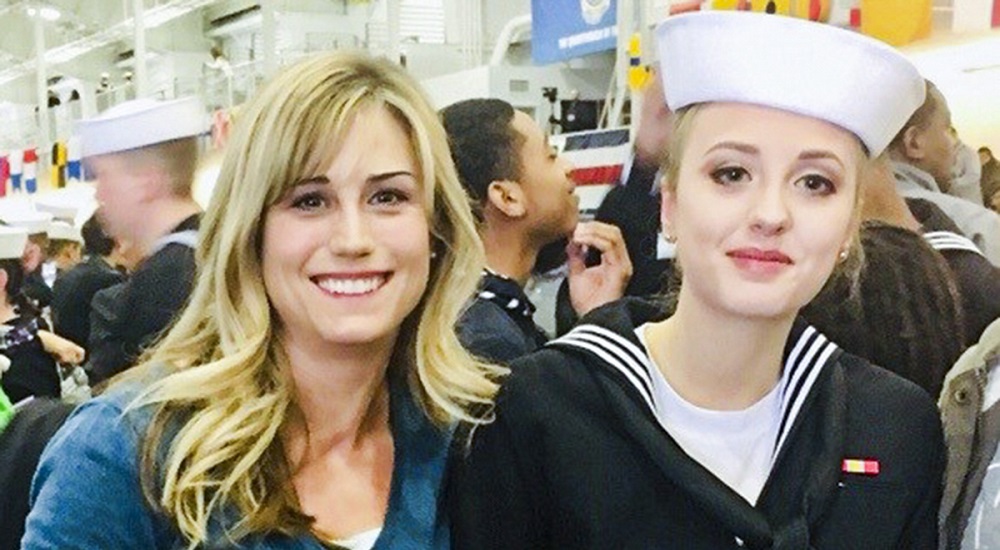Women Veterans make up 8% of Oregon’s Veteran population. However, that growing population requires answers to the unique challenges facing women Veterans.
The Women Veterans Program at the Roseburg VA Health Care System is designed to identify those challenges. It also works with women Veterans to find those answers, according to Jessica Burnett, social worker and interim Women Veterans Program manager. Burnett is pictured above with her daughter Emily.
For Burnett, the mission is personal
“I am a true Oregonian. After visiting many places, I knew Oregon is where my heart is,” said Burnett. “I spent nearly 15 years providing rural social services in Coos and Curry Counties. I decided it was time to move to a warmer climate and relocated to Roseburg, where my daughter attended college.
“My daughter came home one day and said, ‘Hey Mom. I’ve decided to take a different path in life and I signed up for the Navy.’ I didn’t see that coming. She said, ‘This is something I felt called to do and this is what I’m going to do.’ My role at that point was to be a support person. I felt if my daughter is feeling called to do this, I’m going to see what I can do to support Veterans, and I came to VA.”
Burnett hopes to expand services available for all Veterans – primary care, mental health, housing assistance. She also wants to localize it specifically for women Veterans. She fosters a program that is open, accessible, welcoming and Veteran-centric.
“From my perspective, we should be taking a patient-centered approach. Hearing their feedback, what is it that they need? Let them tell us what they need so we can best support them. It is their journey, their life. We don’t know unless we ask the question, ‘How can we can serve them best?’”
For Burnett, the best way to serve women Veterans is to expand on the understanding of women Veteran needs and the availability of health care specific to women: yearly exams, such as pap smears and mammograms.
And support for those recovering from post-traumatic stress disorder and military sexual trauma.
Women Veterans, the fastest growing minority population
“Women Veterans served alongside men. They are a minority within the VA, but they’re the fastest growing minority population,” said Burnett. Her daughter serves aboard the USS Gerald R. Ford, which is stationed in Norfolk, Virginia.
“Women tell me all the time they get addressed as ‘Mister’ instead of ‘Miss.’ It’s just assumed that they are a spouse or if it’s just a last name, that they are male.
“I feel we really need to put a lot of effort and work into women’s health care in VA because it is an area that, previously and historically, hasn’t been part of VA.
“My daughter is active duty right now, but when she comes home, I want her to have a health care system that is top-notch.
“I want it to be better than what she can find in the community.”
Tim Parish is a public affairs officer for the Roseburg VA Health Care System.
Topics in this story
More Stories
The Medical Foster Home program offers Veterans an alternative to nursing homes.
Watch the Under Secretary for Health and a panel of experts discuss VA Health Connect tele-emergency care.
The 2024 National Veteran Suicide Prevention Annual Report provides the foundation for VA’s suicide prevention programs and initiatives.








